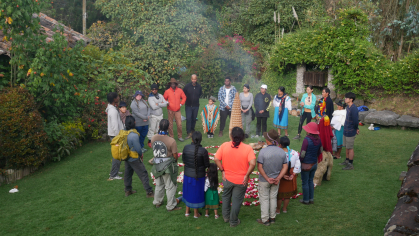Rutgers-Newark was selected by the American Association of State Colleges and Universities as one of 18 institutions nationwide to be part of the Student Success Equity Initiative, a program supported by the Bill & Melinda Gates Foundation.
The goal of the initiative is to help close the equity gap for Black, Latinx, Indigenous and low-income students. A total of 52 institutions have been part of the program since it began.
“The Student Success Equity Intensive helps level the playing field for student success,” said Jacquelyn R. Jones, AASCU’s assistant vice president for student success. “We enjoy working with AASCU institutions as thought partners as we work tirelessly to break down barriers for Black, Latinx, Indigenous, and low-income students.”
Participants represent rural, urban, and suburban campuses from around the country. In the newest cohort, there are six Hispanic-serving institutions (HSIs) four Asian American and Native American Pacific-Islander-serving institutions (AANAPISIs), and one predominantly Black Institution (PBI). The selected institutions serve 146,645 students with an average Pell eligibility of 39 percent..
Developed by the Gates foundation, a main component of the initiative is a unique self-study tool for assessing progress on several fronts, including the best ways to reach non-traditional students and guarantee their success, said John Gunkel, Vice Chancellor for Academic Programs and Strategic Partnerships.
According to Gunkel, there are few comparative ways to measure this data since the federal government, where most of the information exists, doesn’t keep detailed statistics on student groups that comprise a high percentage of enrollment at RU-N, such first generation students, transfer students and others, according to Gunkel.
“If we want to talk about equity we need to know how lower income students are doing compared to wealthier students.If there’s no basis for us to answer the question, we’re just guessing,’’’ he said. “This sophisticated information enables us to find answers.”
Another aspect of the program is close collaboration and brainstorming with other schools involved with the initiative.
The approach involves peer-to-peer learning across institutions via in-person and virtual Student Success Academies. Participants will have access to resources, such as online modules and webinars, and receive support from subject matter experts in data analytics, equity, student success, advising, institutional transformation, and strategic and systems planning.
“AASCU is proud to continue promoting postsecondary student success among America’s new majority at state colleges and universities,” said José A. Cabrales, AASCU’s executive in charge. “Since 48 percent of undergraduates at AASCU institutions are students of color, this expansion of SSEI is a powerful investment in helping diverse students succeed in college and beyond.”



